FIRST QUESTION: WHAT WILL THE MYSTERY OR CRIME BE?
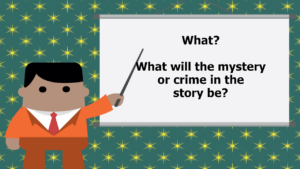 What will the mystery or crime in the novel be? Will it be a psychological thriller and mind control is the crime? Will it be a murder mystery? If so, what is the cause of death? If it's a science fiction plotline, what mystery will hook the reader and thread through the entire story only to be revealed at the end?
What will the mystery or crime in the novel be? Will it be a psychological thriller and mind control is the crime? Will it be a murder mystery? If so, what is the cause of death? If it's a science fiction plotline, what mystery will hook the reader and thread through the entire story only to be revealed at the end?
Any experienced author will tell you that any book, regardless of genre, needs at least a string of mystery or suspense running through it. This is what will keep the reader reading. What will the mystery, crime or element of suspense be in your storyline? The answer to this question will begin the workable plotline.
Be specific in your answer to this question: What specific crime or mystery will drive the plot? Is it a murder, a theft, a missing person, a haunted house, psychological event that changes a family forever, or something more unique? What are the simple circumstances that surround this mystery? Think broad strokes, just a list of three general details.
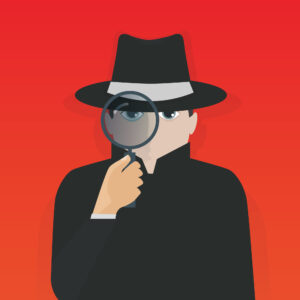 The type of crime or mystery will dictate the investigation methods and details. It will also dictate what clues will be needed in order to slowly reveal the mystery throughout the four-part plot structure.
The type of crime or mystery will dictate the investigation methods and details. It will also dictate what clues will be needed in order to slowly reveal the mystery throughout the four-part plot structure.
The answer to this question may also reveal the complexity of the story. For example, a financial crime is more complex than a murder mystery. The choice of crime may also determine the book genre: if it's a grizzly murder, it may default into a noir crime. If it entails mind games or gaslighting, it may default into a psychological mystery. If it's a small town and there won't be any bloody details or romantic spice at all, it can be either a clean mystery crime novel or even a cozy mystery.
This question will also determine the core of your story, and may also determine not only a certain genre but a book category or two as well. Will it be a gritty murder mystery or a whimsical cozy mystery? Will it be a A Missing Person's novel that is all about the revelation of one secret after another? Will it be an amateur sleuth murder with a satirical edge?
If it will be a murder mystery, you will need to choose a cause of death. If it's a police procedural, you may need to cover fingerprints and DNA evidence. If it's a fraud crime, you may need to weave in a computer tech wizard to find the clues. If it's a private investigator novel, you may need to weave in surveillance, and neighbor interviews. Think about what avenues you as an author you will need to go down in order to tell the story.
A little tip for newbies: My first novel series was with a private investigator because it didn't require knowing police law or the intricacies of police training, etc. Taking on a police procedural, or an FBI agent plotline will require much more research and may not be the fodder for a first time author.
SECOND QUESTION: Who is the Protagonist or Hero of the story?
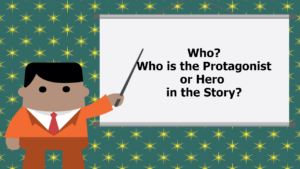 Is he/she a private detective, an amateur sleuth, a police officer, or maybe just a weekend visitor who is inadvertently led into solving a mystery?
Is he/she a private detective, an amateur sleuth, a police officer, or maybe just a weekend visitor who is inadvertently led into solving a mystery?
Another tip is this: At this early stage in brainstorming, don't choose a background, or a motivation, or any personal traits or challenges for the protagonist. It's too early. You will need to coordinate and connect all the characters, the crime or mystery, and all the suspects and their motivations before you can weave any story around any of them.
In this phase of brainstorming, you are really choosing only what hat your main character will wear. But at the same time, you may be choosing the book genre and the ultimate marketing categories for the finished book -- which is a good thing.
THIRD QUESTION: Who is the Victim?
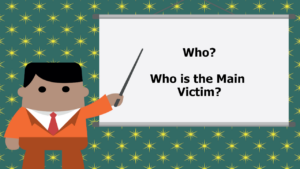 Determine the identity, background, and significance of the victim. This decision can affect the motive, the suspects, and the overall narrative story arc. The victim's characteristics can also influence how the crime impacts other characters or the community at large. Before figuring out who the suspects are, you need to know who the victim is and why they were murdered or wronged in some way. If it's not a crime story but just a mystery or thriller, you will still need a victim. They may not die in the story, but there will be at least an injustice done to them. What is that injustice and who is the victim of it?
Determine the identity, background, and significance of the victim. This decision can affect the motive, the suspects, and the overall narrative story arc. The victim's characteristics can also influence how the crime impacts other characters or the community at large. Before figuring out who the suspects are, you need to know who the victim is and why they were murdered or wronged in some way. If it's not a crime story but just a mystery or thriller, you will still need a victim. They may not die in the story, but there will be at least an injustice done to them. What is that injustice and who is the victim of it?
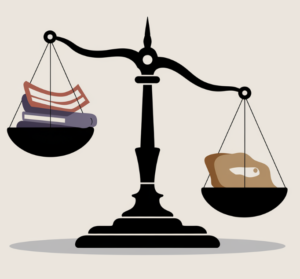 The victim's background, their relationships, and their secrets are all vital. Were they likeable? Did they have known enemies? A compelling victim, even if flawed, gives the reader someone to care about and root for. Even if the victim hasn't been killed or murdered, who is being bullied or targeted as the victim and why?
The victim's background, their relationships, and their secrets are all vital. Were they likeable? Did they have known enemies? A compelling victim, even if flawed, gives the reader someone to care about and root for. Even if the victim hasn't been killed or murdered, who is being bullied or targeted as the victim and why?

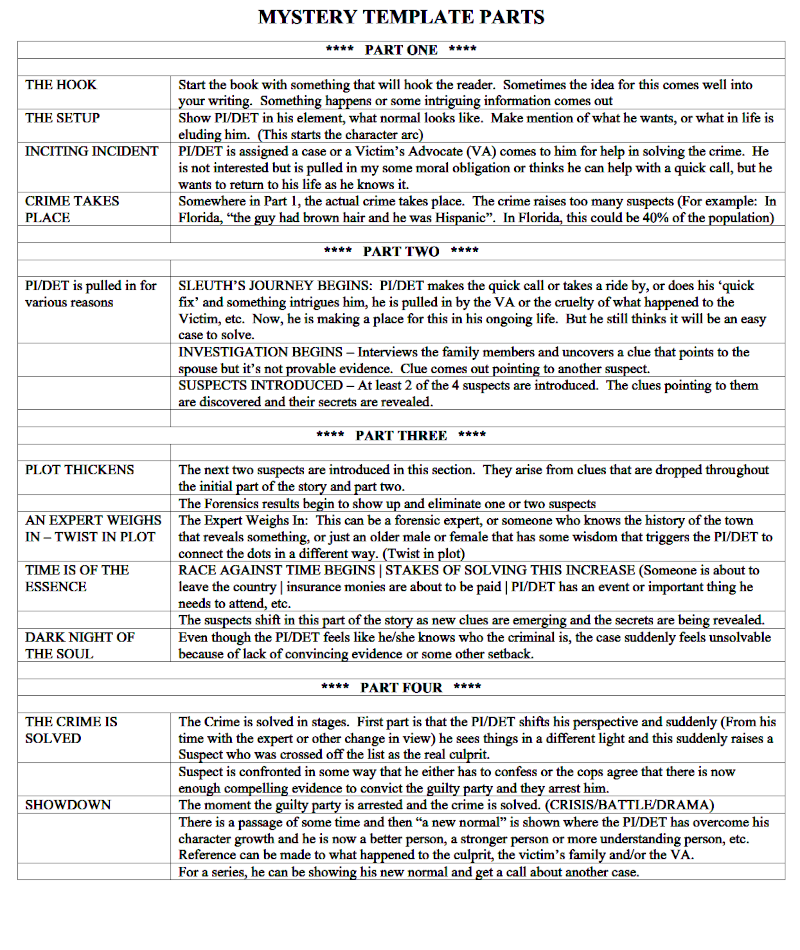
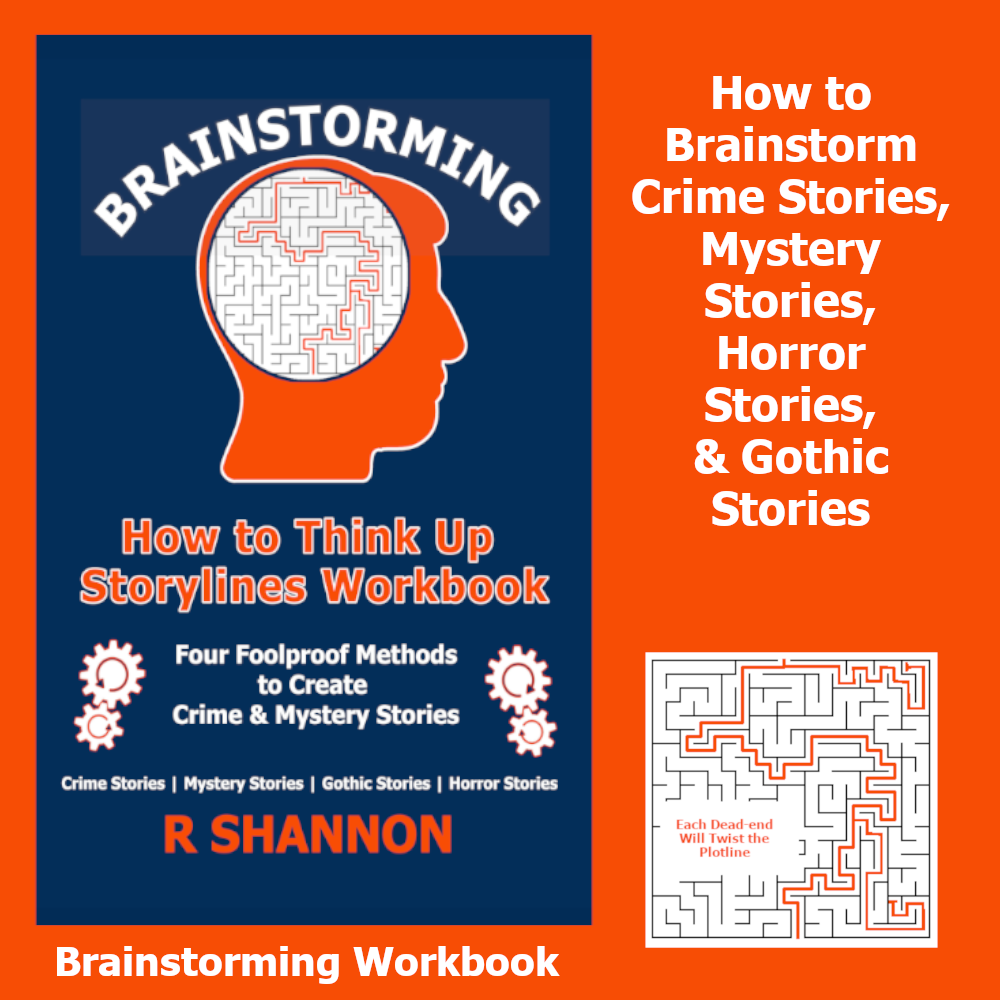
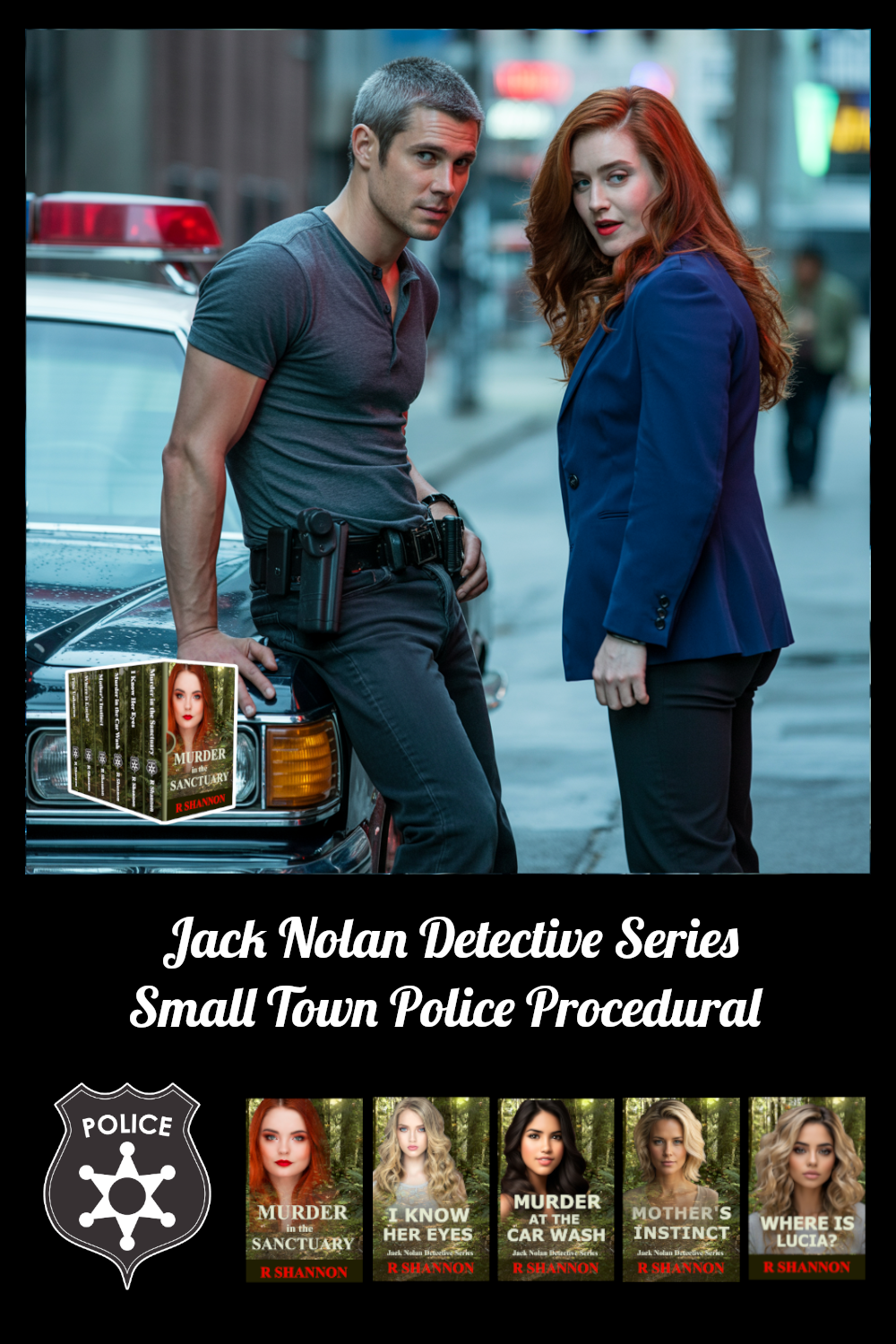
 Once you have all of these story parts connected, this is the easiest time to take the characters from stick figures into two-dimensional characters. The characters will be transformed into their final three-dimensional states during the actual book-writing process, so the goal in this brainstorming process is to sculpt two-dimensional characters.
Once you have all of these story parts connected, this is the easiest time to take the characters from stick figures into two-dimensional characters. The characters will be transformed into their final three-dimensional states during the actual book-writing process, so the goal in this brainstorming process is to sculpt two-dimensional characters.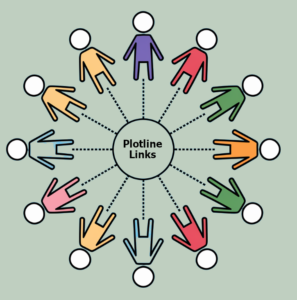 So the next set of questions is designed to take your story idea from this crime/mystery spine to a second dimensional level. This is the point where you can add realistic character traits and motivations that will fit inside the plotline. I assure you, there won't be any more trying to fit a fully-fleshed out round character into a square plotline. This process will avoid that.
So the next set of questions is designed to take your story idea from this crime/mystery spine to a second dimensional level. This is the point where you can add realistic character traits and motivations that will fit inside the plotline. I assure you, there won't be any more trying to fit a fully-fleshed out round character into a square plotline. This process will avoid that.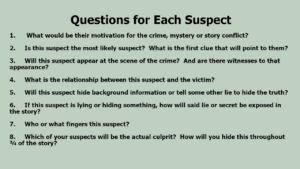
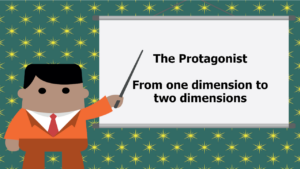 Unless you are writing in a series where the main character is already fully developed, it's best to wait until after choosing the antagonist, suspects, and motivations for each of them to infuse the main protagonist with human traits. Why? Because the protagonist will need to have a character arc and this will need to be developed over the action of the story and in relation to all of the different suspects.
Unless you are writing in a series where the main character is already fully developed, it's best to wait until after choosing the antagonist, suspects, and motivations for each of them to infuse the main protagonist with human traits. Why? Because the protagonist will need to have a character arc and this will need to be developed over the action of the story and in relation to all of the different suspects. Once you know who, what, when, where and how the story will proceed, now you can choose the type of protagonist needed to solve the mysteries. Now it is time to sketch in more character traits and details. This process will take your stick figure and raise it to a level of a two-dimensional character.
Once you know who, what, when, where and how the story will proceed, now you can choose the type of protagonist needed to solve the mysteries. Now it is time to sketch in more character traits and details. This process will take your stick figure and raise it to a level of a two-dimensional character.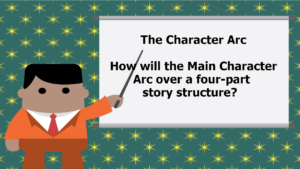 What fears or human frailty will the sleuth need to overcome in solving the crime? This is what drives a character arc. What will the main character ultimately learn? Does he have a fear of heights? Is she normally timid and now has to be courageous? What inner fears will be challenged when going about solving the crime and/or mystery?
What fears or human frailty will the sleuth need to overcome in solving the crime? This is what drives a character arc. What will the main character ultimately learn? Does he have a fear of heights? Is she normally timid and now has to be courageous? What inner fears will be challenged when going about solving the crime and/or mystery?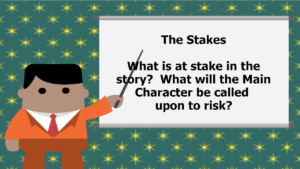
 Again, it's easier to create a character after you already know what he/she will be required to do physically, what skills they will need, and what human flaw can make this challenging. It's easier than forming a main character that you like and then trying to fit him or her into a storyline that already has a life of its own.
Again, it's easier to create a character after you already know what he/she will be required to do physically, what skills they will need, and what human flaw can make this challenging. It's easier than forming a main character that you like and then trying to fit him or her into a storyline that already has a life of its own.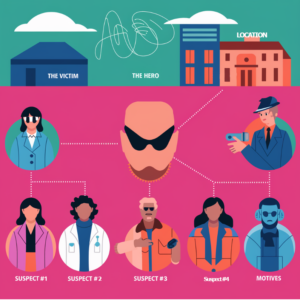 Is there a moral dimension to the conflict that raise the stakes? Does the protagonist's decision have far-reaching ethical implications? Is he/she fighting for justice, truth, or a greater good? Moral dilemmas add weight and complexity to the stakes.
Is there a moral dimension to the conflict that raise the stakes? Does the protagonist's decision have far-reaching ethical implications? Is he/she fighting for justice, truth, or a greater good? Moral dilemmas add weight and complexity to the stakes.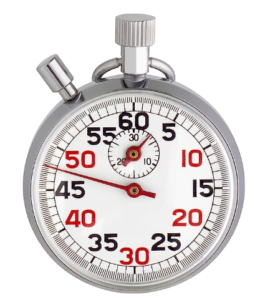 Is there a ticking clock in your storyline? Is there a deadline to solve the crime? Is there a rapidly-approaching event that can significantly heighten the stakes? The faster the clock ticks, the more intense the pressure, the higher the stakes. This added time pressure can turn a mystery into a thriller.
Is there a ticking clock in your storyline? Is there a deadline to solve the crime? Is there a rapidly-approaching event that can significantly heighten the stakes? The faster the clock ticks, the more intense the pressure, the higher the stakes. This added time pressure can turn a mystery into a thriller.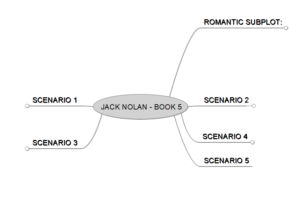
 When Brainstorming a Novel Storyline, what questions do you need to ask and answer? After having written 14 novels, I believe this technique that I'm about to tell you about will help anyone brainstorm a working plotline.
When Brainstorming a Novel Storyline, what questions do you need to ask and answer? After having written 14 novels, I believe this technique that I'm about to tell you about will help anyone brainstorm a working plotline. What will the mystery or crime in the novel be? Will it be a psychological thriller and mind control is the crime? Will it be a murder mystery? If so, what is the cause of death? If it's a science fiction plotline, what mystery will hook the reader and thread through the entire story only to be revealed at the end?
What will the mystery or crime in the novel be? Will it be a psychological thriller and mind control is the crime? Will it be a murder mystery? If so, what is the cause of death? If it's a science fiction plotline, what mystery will hook the reader and thread through the entire story only to be revealed at the end? The type of crime or mystery will dictate the investigation methods and details. It will also dictate what clues will be needed in order to slowly reveal the mystery throughout the four-part plot structure.
The type of crime or mystery will dictate the investigation methods and details. It will also dictate what clues will be needed in order to slowly reveal the mystery throughout the four-part plot structure. Is he/she a private detective, an amateur sleuth, a police officer, or maybe just a weekend visitor who is inadvertently led into solving a mystery?
Is he/she a private detective, an amateur sleuth, a police officer, or maybe just a weekend visitor who is inadvertently led into solving a mystery? Determine the identity, background, and significance of the victim. This decision can affect the motive, the suspects, and the overall narrative story arc. The victim's characteristics can also influence how the crime impacts other characters or the community at large. Before figuring out who the suspects are, you need to know who the victim is and why they were murdered or wronged in some way. If it's not a crime story but just a mystery or thriller, you will still need a victim. They may not die in the story, but there will be at least an injustice done to them. What is that injustice and who is the victim of it?
Determine the identity, background, and significance of the victim. This decision can affect the motive, the suspects, and the overall narrative story arc. The victim's characteristics can also influence how the crime impacts other characters or the community at large. Before figuring out who the suspects are, you need to know who the victim is and why they were murdered or wronged in some way. If it's not a crime story but just a mystery or thriller, you will still need a victim. They may not die in the story, but there will be at least an injustice done to them. What is that injustice and who is the victim of it? The victim's background, their relationships, and their secrets are all vital. Were they likeable? Did they have known enemies? A compelling victim, even if flawed, gives the reader someone to care about and root for. Even if the victim hasn't been killed or murdered, who is being bullied or targeted as the victim and why?
The victim's background, their relationships, and their secrets are all vital. Were they likeable? Did they have known enemies? A compelling victim, even if flawed, gives the reader someone to care about and root for. Even if the victim hasn't been killed or murdered, who is being bullied or targeted as the victim and why? Where will the story play out? Most stories will have multiple stages, but where will most of the action take place? Will it be a haunted estate house? A corrupt business office? Will it be on the streets in a cityscape? How does the setting influence the mood and the unfolding of the mystery? For example: If it's a gothic novel, you will want a large estate house or a monastery, a place that has secret rooms, tunnels, or has a long history with lots of secrets. If it's a urban thriller, you will need several stages in a city scape. If it's a psychological thriller, it may need at least a mental institution. Think of yourself as a location scout for a movie: What interesting places can most of the drama take place?
Where will the story play out? Most stories will have multiple stages, but where will most of the action take place? Will it be a haunted estate house? A corrupt business office? Will it be on the streets in a cityscape? How does the setting influence the mood and the unfolding of the mystery? For example: If it's a gothic novel, you will want a large estate house or a monastery, a place that has secret rooms, tunnels, or has a long history with lots of secrets. If it's a urban thriller, you will need several stages in a city scape. If it's a psychological thriller, it may need at least a mental institution. Think of yourself as a location scout for a movie: What interesting places can most of the drama take place? Choose a location that not only serves as a backdrop or a stage for the events to take place but which can become its own character. What secrets does the location harbor? Who lived in the historic mansion in another era? Will you need a remote island somewhere to have a closed-door mystery? In a city scape, the backdrop may be about about the certain era, or just a gritty story, or a surreal story. In a mystery drama, what happened in the main family that started all the secrecy? What sin has been passed down through the generations? What corporate setting do you need to show back-door deals or money laundering? What setting can you choose that will enhance the story?
Choose a location that not only serves as a backdrop or a stage for the events to take place but which can become its own character. What secrets does the location harbor? Who lived in the historic mansion in another era? Will you need a remote island somewhere to have a closed-door mystery? In a city scape, the backdrop may be about about the certain era, or just a gritty story, or a surreal story. In a mystery drama, what happened in the main family that started all the secrecy? What sin has been passed down through the generations? What corporate setting do you need to show back-door deals or money laundering? What setting can you choose that will enhance the story?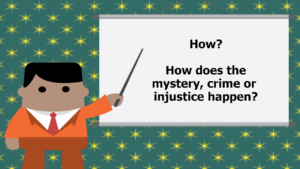
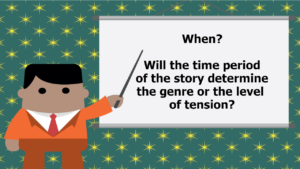 Will the story be set in a specific time period? Will it be a general contemporary book that won't reference any specific time period at all? Or will it be specifically cast in an era or time period that will require research?
Will the story be set in a specific time period? Will it be a general contemporary book that won't reference any specific time period at all? Or will it be specifically cast in an era or time period that will require research?
 I decided not to change the actual plotline of the story because I still liked it. I chose to polish up my prose and add some additional foreshadowing.
I decided not to change the actual plotline of the story because I still liked it. I chose to polish up my prose and add some additional foreshadowing.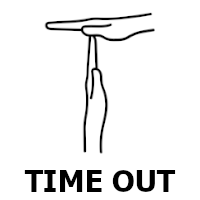 I had the book edited originally, but I just changed every other sentence, so it had to be re-edited. I knew that going into this, so it was okay. Now, I like to edit the book myself and I have an elaborate multi-layer stage of proofreading that I go through so that when I pass the book to an editor, his or her time is not eaten up with correcting silly typos and adding forgotten commas.
I had the book edited originally, but I just changed every other sentence, so it had to be re-edited. I knew that going into this, so it was okay. Now, I like to edit the book myself and I have an elaborate multi-layer stage of proofreading that I go through so that when I pass the book to an editor, his or her time is not eaten up with correcting silly typos and adding forgotten commas.
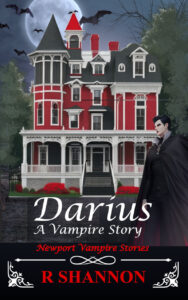
 Before I get to how to do a 2nd edition of your book, the preliminary questions you need to answer are:
Before I get to how to do a 2nd edition of your book, the preliminary questions you need to answer are: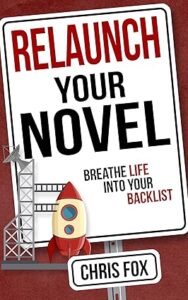 I read Chris Fox's book Relaunch Your Novel and he had great advice. He got my wheels turning and he asked the right questions about why you would want to relaunch your novel.
I read Chris Fox's book Relaunch Your Novel and he had great advice. He got my wheels turning and he asked the right questions about why you would want to relaunch your novel.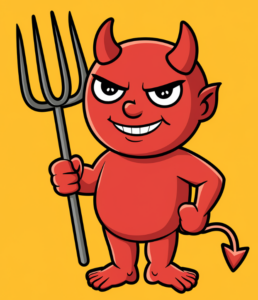 The biggest temptation along the way was to take the attitude that everyone's early books aren't that great, so let go and just move on. This would have certainly given me a quick fix. But in my case, I just couldn't leave the book alone knowing that I could probably polish it up a bit before moving on. So for me, even though it was tempting to just let go and move on, I decided I want to fix the book -- and maybe even the entire series -- but I wasn't sure whether I just wanted to do a re-edit or to change the storyline, etc.
The biggest temptation along the way was to take the attitude that everyone's early books aren't that great, so let go and just move on. This would have certainly given me a quick fix. But in my case, I just couldn't leave the book alone knowing that I could probably polish it up a bit before moving on. So for me, even though it was tempting to just let go and move on, I decided I want to fix the book -- and maybe even the entire series -- but I wasn't sure whether I just wanted to do a re-edit or to change the storyline, etc. I decided that I wanted to just fix the first book in the series because it had the lowest ratings. The second reason I wanted to make the effort with fixing the book is that I have now finished the series with the 5th book, and now that I know how the story ends, I wanted to put a little foreshadowing into the book while I was buffing it up.
I decided that I wanted to just fix the first book in the series because it had the lowest ratings. The second reason I wanted to make the effort with fixing the book is that I have now finished the series with the 5th book, and now that I know how the story ends, I wanted to put a little foreshadowing into the book while I was buffing it up. This was the one question that led me down the road of choosing to write a 2nd edition: What will I get out of it? The answer was and is: I knew if I fixed Book 1 that then I would be able to let go of the entire series and move on. I still like the stories and the series itself. It's not my most popular book series, but I still like it. So fixing the first book was important to me in terms of 'my body of work'. I knew I had more experience and I could improve the book, even if it was just adding some foreshadowing or improving on the prose.
This was the one question that led me down the road of choosing to write a 2nd edition: What will I get out of it? The answer was and is: I knew if I fixed Book 1 that then I would be able to let go of the entire series and move on. I still like the stories and the series itself. It's not my most popular book series, but I still like it. So fixing the first book was important to me in terms of 'my body of work'. I knew I had more experience and I could improve the book, even if it was just adding some foreshadowing or improving on the prose.
 If you, however, are self-publishing and are planning to do your own marketing, giving away your book, especially when you are just breaking in as an author is crucial. Once you decide to give away your books, you will need a PDF document and an ePub document.
If you, however, are self-publishing and are planning to do your own marketing, giving away your book, especially when you are just breaking in as an author is crucial. Once you decide to give away your books, you will need a PDF document and an ePub document.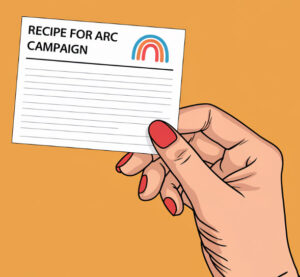 Yes, the recipe. I just finished planning a Private Advanced Reader Campaign and although it's not hard, it does require several steps and knowing what order you need to do each step is important. If you do them in the proper order, it will be an easy process.
Yes, the recipe. I just finished planning a Private Advanced Reader Campaign and although it's not hard, it does require several steps and knowing what order you need to do each step is important. If you do them in the proper order, it will be an easy process.
 For any Advanced Reader Campaign, I would suggest you add a disclaimer that it is an advanced copy, a watermark, and a link to fill out a questionnaire about what the reader thought about the book.
For any Advanced Reader Campaign, I would suggest you add a disclaimer that it is an advanced copy, a watermark, and a link to fill out a questionnaire about what the reader thought about the book.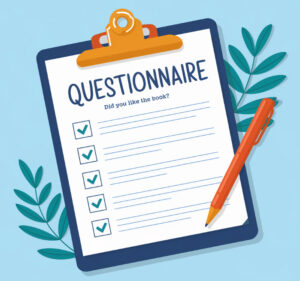 You will need to create the questionnaire for the readers to fill out. Now, if you don't have a website where you can create a form, you can use a google forms or you can ask the readers to send an email with feedback about the book to your email. I have found the forms get more interaction.
You will need to create the questionnaire for the readers to fill out. Now, if you don't have a website where you can create a form, you can use a google forms or you can ask the readers to send an email with feedback about the book to your email. I have found the forms get more interaction.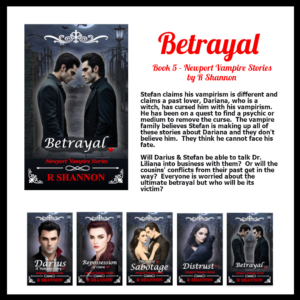 And lastly, you will need graphics to post on your website or social media.
And lastly, you will need graphics to post on your website or social media.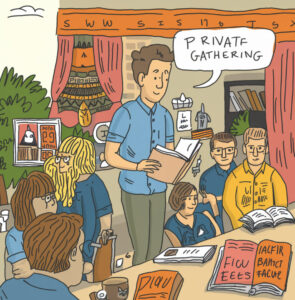 The one main reason I have right now is that I want to avoid offering this to the general public because I am not sure if the book, even though it is edited, is in its final form.
The one main reason I have right now is that I want to avoid offering this to the general public because I am not sure if the book, even though it is edited, is in its final form. In order to offer a limited ARC copy, I will use my newsletter list, which is really my reader list, and my website. I will limit the invitations to these two places.
In order to offer a limited ARC copy, I will use my newsletter list, which is really my reader list, and my website. I will limit the invitations to these two places. I usually bring these epubs into Sigil, a program to create and/or edit ePubs in order to make some global changes and/or clean up the extra codes it may bring inside. I will have a video on this one.Create a PDF from your docx file. Once you have the epub and PDF, you are ready to upload to KDP and test it. I will cover this in one of the videos.Upload the PDF and the ePub up to google drive and copy the links; you will need them later.
I usually bring these epubs into Sigil, a program to create and/or edit ePubs in order to make some global changes and/or clean up the extra codes it may bring inside. I will have a video on this one.Create a PDF from your docx file. Once you have the epub and PDF, you are ready to upload to KDP and test it. I will cover this in one of the videos.Upload the PDF and the ePub up to google drive and copy the links; you will need them later. The next steps are done with my website. They have to do with pages and forms. So if you don’t have a website, then you can use google forms or whatever system you presently use to get signups. I use Mailerlite and could have set this up through them, but I want to receive the emails and names myself so I can keep a list of who the ARC readers are so I can ask them for a review when the book is ultimately published.
The next steps are done with my website. They have to do with pages and forms. So if you don’t have a website, then you can use google forms or whatever system you presently use to get signups. I use Mailerlite and could have set this up through them, but I want to receive the emails and names myself so I can keep a list of who the ARC readers are so I can ask them for a review when the book is ultimately published. The first thing I noticed is that the story needs to be contained or confined to a shorter version than a novel. This means that you won’t have the same space to build the characters.
The first thing I noticed is that the story needs to be contained or confined to a shorter version than a novel. This means that you won’t have the same space to build the characters.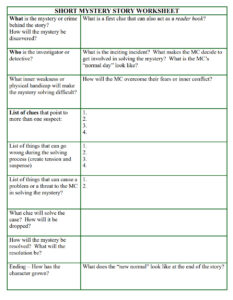 There are templates all over the internet for story crafting, but they all seem to follow the hero’s journey, which I find doesn’t work for mystery books. At least I was never able to make them work for me.
There are templates all over the internet for story crafting, but they all seem to follow the hero’s journey, which I find doesn’t work for mystery books. At least I was never able to make them work for me. There are many blog posts and videos on the internet about how to write a novel. Much of the advice is general in nature and only broad-stroke tips. This video seeks to go one step further and open my last book, which is still being proofread in Layer 8, and show a work-flow demonstration.
There are many blog posts and videos on the internet about how to write a novel. Much of the advice is general in nature and only broad-stroke tips. This video seeks to go one step further and open my last book, which is still being proofread in Layer 8, and show a work-flow demonstration.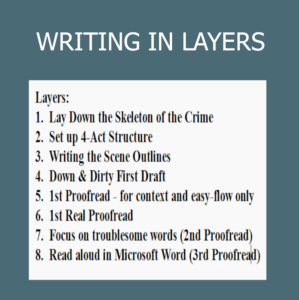 I am in the process of finishing my 14th novel. I started out like many of you as a self-taught author who took in unorganized, uncurricularized information and had to make sense of it all. I devised this 8 Layer system to try to write a novel as efficiently as was possible. I offer it to you for whatever weight you wish to give it.
I am in the process of finishing my 14th novel. I started out like many of you as a self-taught author who took in unorganized, uncurricularized information and had to make sense of it all. I devised this 8 Layer system to try to write a novel as efficiently as was possible. I offer it to you for whatever weight you wish to give it.